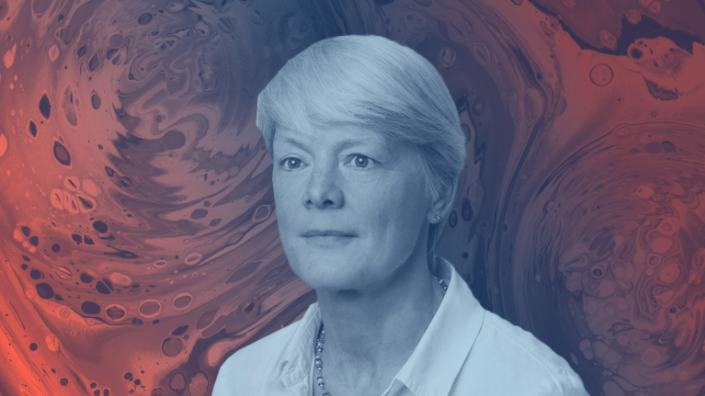
At the PSYCH Symposium on 11 May, industry leaders will connect and collaborate to expedite access to psychedelic-based healthcare across Europe.
Small Pharma is conducting the first ever clinical trial with DMT therapy to treat Major Depressive Disorder (MDD), with Chief Medical and Scientific Officer Dr Carol Routledge speaking at Europe’s leading psychedelic medicine conference.
Major Depressive Disorder
More than 280 million people suffer from depression worldwide, and Major Depressive Disorder costs European economies over US$130 billion each year. As a result, medical innovation could have dramatic benefits both socially and economically.
DMT produces relatively brief but powerful psychedelic experiences – typically lasting twenty to thirty minutes. This short duration opens up the potential for a practical treatment that could be embedded into the existing structure of the healthcare system.
Small Pharma hopes its proprietary DMT formulation, SPL026, will demonstrate significantly improved patient outcomes in comparison to SSRIs. Although SSRIs do not work for many patients, they remain the conventional treatment for depression and related disorders.
To assess the safety and tolerability of DMT, the neuroscience company conducted a Phase I study of DMT-assisted therapy among healthy volunteers – who had no prior experience of psychedelics. The study found that the compound was safe and well tolerated, with few adverse events, and that there were no negative effects during the three-month follow-up period. It also enabled the company to select a dose to take into the Phase IIa part of the trial, which is currently underway.
Commenting on the top-line data from Phase I, Dr Routledge said: ‘As for the subjects’ experience, most reported that it was pleasurable, not too challenging, and, most importantly, nobody expressed any regrets. Additionally, the strong safety profile and rapid clearance of SPL026 from the body provide the potential for a scalable treatment with limited monitoring needs.’
Ahead of PSYCH Symposium: London 2022, PSYCH sat down with Small Pharma’s Dr Routledge, to discuss the study and its impact on Major Depressive Disorder.
‘There are treatments out there, which are efficacious in a number of patients, and they really do help, but they don’t work in all patients,’ said Routledge. ‘In terms of the global economy, it loses an estimated US$1 trillion in productivity through depression each year. Like I said, there are some treatments, but I just don’t think they’re as effective as they could be.
‘That’s one of the reasons that Small Pharma is looking at a more novel approach, to give patients choices based on an underpinning mechanism of action. We really do think this treatment could get to the root cause of depression and that it offers a valuable alternative approach to SSRIs.’
Small Pharma was granted an Innovation Passport for its lead DMT candidate SPL026 from the UK’s medical regulator, the MHRA, to fast-track and support the development of SPL026. PSYCH was keen to learn about the passport and the regulator’s support for psychedelic medicines.
‘The first thing you get is the passport, but actually it’s a whole series of meetings with the MHRA, NICE and the NHS,’ outlined Routledge.
‘As you develop your molecule through to the market, you get the input of all these partners. So not only is it a fast track, but they also really help in terms of your development plan and how you take your molecule forward. For us, it’s going to be really important, and I am really pleased we are part of that process.
‘I do believe these treatments bring something really different to the patients. Based on the data we have and the data that academic researchers have put out, in terms of the human studies looking at mechanism of action, it really does look like this treatment could get to the root cause of depression. But unless we take them forward carefully and properly, they will not get to the market and to the patients that need them.
‘Based on our timelines, we estimate our market authorisation application to be about 2027, but that’s projecting those timelines out. We have to take this treatment through Phase IIb and then through Phase III trials, and then Small Pharma must apply market approval – these things take time.’
With the company working so closely with regulators, PSYCH asked if there had been any differences in seeking approval between the UK and North America.
‘In terms of seeking scientific advice from the FDA and MHRA, I would say they’re both pretty similar,’ mulled Routledge. They have both been very facilitatory and perfectly happy with us selecting MDD as the patient population for our studies. They’ve both given their opinions on study design and on the preclinical package we need to complete beforehand.
‘Regarding our Phase IIb study, we have yet to decide which countries in Europe we will use, but we will open sites in Europe.’
PSYCH Symposium: London 2022
Discussing May’s PSYCH Symposium, PSYCH asked Routledge why it is vital to hold conversations that promote psychedelic healthcare in Europe.
‘It’s about education,’ said Routledge. ‘In many European countries psychedelic-assisted therapy is quite new, so we have to bring the regulators along with us. I think holding these conversations is really important, to inform various policies in different countries.
‘We will be seeking approval from regulators, but also from those who may support us as we move our treatments forward. It is still a new area, and I think education is vitally important.’
Secure your ticket today to connect with industry influencers, learn from the sector’s thought leaders and contribute to the future of psychedelics as medicine in Europe.
For more information, and partnership opportunities, please visit the website: https://www.psychsymposium.com/


